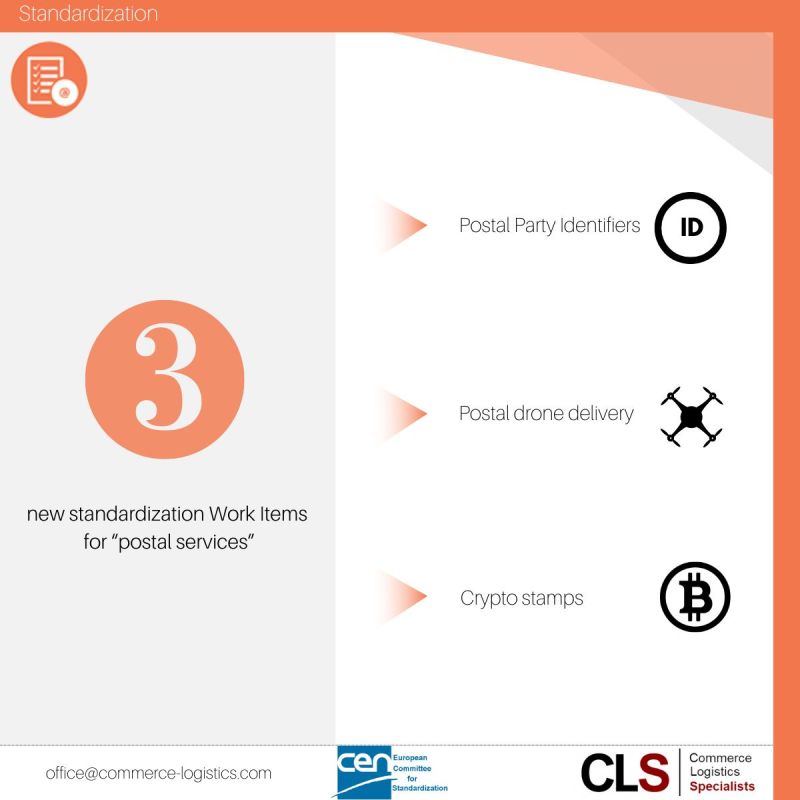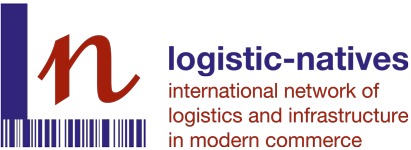CLS explains simply: 3 new standardization Work Items for „postal services“

The European Committee for Standardization (#CEN), founded in 1961, is a public standards organization. Its 34 national #members work together to #develop #European standards in a variety of #sectors as the #basis for the European #internal market. CEN is officially recognized by the #EuropeanUnion, European Free Trade Association (#EFTA), and the #UnitedKingdom as a European standards body. Its Technical Committees (#TCs) are responsible for #developing the #standards in their respective areas: TC331 is responsible for “Postal Services” which, according to #EU #regulations, includes postal #operators as well as #commercial #parcel and express #services.
New standard for measuring “Parcel delivery environmental footprint” being finalised
On 4 November 2022, in addition to the revision of existing standards in the areas of
-“Packaging”,
-“Parcel boxes / parcel locker stations / unattended delivery of parcels”,
-“Quality of Services of ecommerce letter-post items/Parcels cross-border”, and
-“Addressing”,
the new European standard for measuring the parcel delivery environmental footprint („#CO2 and #GHGemissions and #Air #pollutants for #parcel #logistics delivery services“) was completed. The standard is expected to be published in the EU official journal in 2023, making it the “state-of-the-art”.
TC 331 is now starting 3 new Work Items
𝟭. 𝗣𝗼𝘀𝘁𝗮𝗹 𝗣𝗮𝗿𝘁𝘆 𝗜𝗱𝗲𝗻𝘁𝗶𝗳𝗶𝗲𝗿𝘀: In the postal industry, data must be exchanged in advance (EAD) at #item level for all items containing #goods. Consequently, all the #parties involved must be clearly and unambiguously identified. This is best achieved using a harmonized #system of #identification codes, linked to a #database which can be accessed by all authorized users.
𝟮. 𝗣𝗼𝘀𝘁𝗮𝗹 𝗱𝗿𝗼𝗻𝗲 𝗱𝗲𝗹𝗶𝘃𝗲𝗿𝘆: As several postal operators (both designated operators (#DOs) and non-DOs) are already engaged in #dronedelivery pilots, #standardization will harmonize vital elements of #postal drone delivery services for the #benefit of consumers.
𝟯. 𝗖𝗿𝘆𝗽𝘁𝗼 𝘀𝘁𝗮𝗺𝗽𝘀: As some European postal operators have issued #crypto #stamps in the recent past (Note: European postal markets are liberalized and therefore private postal operators may also issue crypto stamps), it became apparent that #harmonization and #standardization would benefit both postal #operators and #customers wishing to use and collect such crypto stamps. The World Association for the Development of Philately (#WADP) will be consulted and may play an active #role contributing in future standardization & harmonization #efforts.
These standards will support the work of creating a level playing field for European postal services.
Click here for the LinkedIn-Article.

Walter Trezek
Document Exchange Network GmbH

